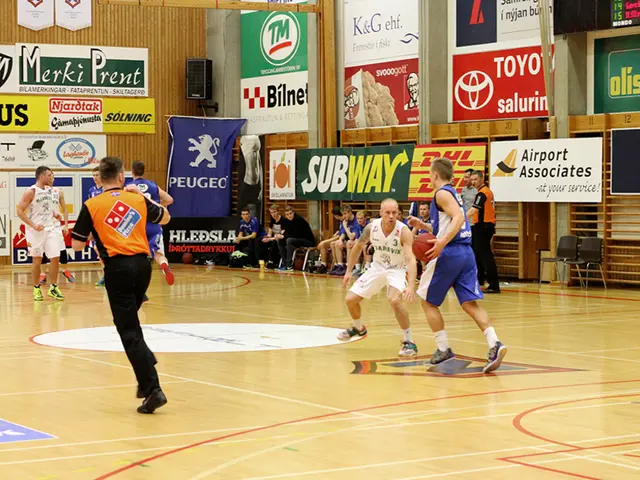Saudi Arabia advocating for Palestinian state establishment
In a significant move, Saudi Arabia, alongside France, has initiated a push for international recognition of a Palestinian state as part of a broader diplomatic effort to advance the Palestinian cause on the global stage. This renewed effort is seen as a reboot of the 2002 Saudi-led Arab Peace Initiative.
The objective of this push is multifold. It aims to increase diplomatic pressure on Israel and its allies, particularly at the United Nations, where recognition by major Western states like France and Australia could shift the balance of power and isolate Israel diplomatically. Moreover, it seeks to catalyze political momentum toward a two-state solution, promoting regional peace, stability, and integration by ending the Israeli-Palestinian conflict.
For Saudi Arabia, this initiative could improve its international standing and strengthen ties with pro-Palestinian constituencies while setting conditions favourable for possible future normalization of relations with Israel under terms the Kingdom finds acceptable. However, the move has drawn criticism, with some viewing it as primarily transactional and symbolic, rather than a genuine effort to achieve Palestinian liberation or address ongoing human rights issues.
The Arab Peace Initiative, proposed by Saudi Arabia's King Abdullah in 2002, called for the recognition and normalization of relations with Israel in exchange for ending the occupation and establishing a Palestinian state. Saudi diplomacy advances other foreign policy objectives as well, such as forming an Arab-Islamic voting bloc and consolidating its position in the post-Gaza war architecture.
The push for more countries to recognize Palestinian statehood began around a year ago. In September 2024, Saudi Arabia, together with Norway, launched the "Global Alliance for the Implementation of the Two-State Solution." All 22 members of the Arab League signed the declaration, which is seen as a diplomatic breakthrough and the first time many have censured Hamas so publicly.
The declaration also condemns attacks by Israel against civilians in Gaza and civilian infrastructure, siege and starvation, which have resulted in a devastating humanitarian catastrophe. The urgency of the situation in Gaza and the worsening violence in the West Bank have led Saudi Arabia to reaffirm its support for the Arab Peace Initiative.
The Saudi-French initiative offers a way out, reducing the need for US military involvement and offering Israel long-term security guarantees if it abandons maximalist positions. However, the initiative faces considerable opposition from Israel and its ally, the US. The UK and Canada have issued statements of conditional recognition of Palestine, suggesting the Saudi-French approach is moving the needle.
Saudi Arabia is leading the charge for international recognition of a Palestinian state, and the "New York Declaration," signed by all member states of the Arab League, the EU, and around 17 other countries, outlines a phased path toward a two-state solution. The declaration also marks a diplomatic breakthrough, with all parties publicly condemning Hamas' actions and calling for disarmament, the release of remaining Israeli hostages, and giving up leadership in Gaza.
The Saudi-French initiative, if successful, could reshape international diplomacy on Palestine, potentially leading to a more peaceful and stable Middle East. However, the path forward is fraught with challenges, and the effectiveness and intentions of the initiative continue to be debated.
- The Saudi-led push for international recognition of a Palestinian state is aimed at increasing diplomatic pressure on Israel and its allies, particularly at the United Nations, where recognition by major Western states could shift the balance of power.
- This initiative seeks to catalyze political momentum toward a two-state solution, which could promote regional peace, stability, and integration by ending the Israeli-Palestinian conflict.
- The move has drawn criticism, with some viewing it as a transactional and symbolic effort, rather than a genuine attempt to achieve Palestinian liberation or address ongoing human rights issues.
- The Arab Peace Initiative, proposed in 2002, called for the recognition and normalization of relations with Israel in exchange for ending the occupation and establishing a Palestinian state.
- The push for more countries to recognize Palestinian statehood began around a year ago, with the "Global Alliance for the Implementation of the Two-State Solution" launched by Saudi Arabia and Norway, garnering 22 members of the Arab League as signatories.
- The declaration signed by the Arab League, EU, and around 17 other countries, notably the "New York Declaration," outlines a phased path toward a two-state solution and marks a diplomatic breakthrough, with all parties publicly condemning Hamas' actions.







